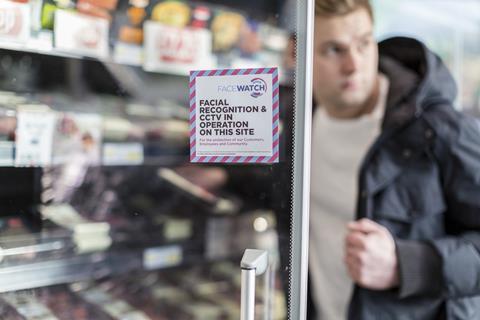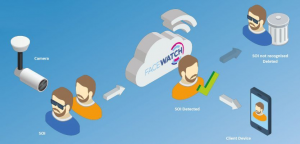Facewatch is leading the drive to support retailers in reducing store theft, staff violence and abuse which has seen an unprecedented rise in recent months by partnering with Store Excel.
Store Excel is the fastest growing online and digital community of independent retailers in the UK. Their aim is to support retailers by providing an interconnected network of information, advice and business growth opportunities.
David Gilroy, CEO, Store Excel:
“Store Excel exists to support retailers and to provide information and access to the latest and best products and services. We understand that store security is becoming one of the most worrying issues for UK retailers and by working with Facewatch I believe we can alert our members to a new technology which will improve the environment for those who work in the sector and thereby improve the experience for customers and reduce losses. Store Excel will be using a combination of online communications and telephone marketing to speak to our members and help answer questions about facial recognition and its place in the sector. Technology continues to be a driver of innovation on the high street and it is important that facial recognition is explored as a new force for good”.
Nick Fisher, CEO, Facewatch:
“Facewatch is now market ready and has been undergoing successful trials in retailers across the UK for the last 12 months. We are now rolling out the solution to the whole UK retail sector and this starts with helping potential retail clients understand the way facial recognition works in a commercial situation and how effective it is. We have been very careful to ensure data compliance and have a unique approach by being the data controller. We have also commissioned market research to gauge public reaction to the technology which proved positive*. Store Excel also has a unique position in the sector, providing advice, new product and service information to their members and are a highly trusted voice, for us this is a perfect opportunity to partner with them”
Facewatch – product overview:
Facewatch provides retailers with a complete solution that enables store owners and staff to monitor who comes into their store using Facial recognition. A standard HD camera is set up to capture facial images of customers as they enter the store. Each image is checked against a watch list of images, managed by the Facewatch secure cloud, and if there is a match of a ‘person of interest’, who has been added to the stores watch list previously, an alert will be sent to the manager’s phone. The system uses the latest facial recognition algorithms providing a very high level of accuracy, it is easy to install by security industry professionals and to use by non-technical operators. Images captured by the system who do not match an image on the watch list are immediately and securely deleted. The Facewatch system complies to all the required codes of conduct under European GDPR rules as Facewatch is the official data controller.
Recent testimonials from Facewatch trials
Luton Town FC
“We installed Facewatch in our Luton Town FC Store 5 months ago as a result of continued theft of high-value stock. Since the system went live our losses have reduced by 100%. This is an outstanding result and the savings made have enabled us to fund the entire installation and 3 years license fees. We will roll out Facewatch to our stadium shop in May 2019. I would highly recommend Facewatch to any retailer experiencing any type of theft or anti-social behaviour”.
Siobhan Kos-Hodge, Luton Town FC, Head of Retail
Wilks Budgens, Aylesbury
“Since installing Facewatch we have seen a reduction in losses of over 25%. Using Facewatch technology is a significant enhancement from the existing solution where we have to log on to the web to view images of Subjects of Interest and try to remember them all. The Facewatch team, especially George, has been great to work with and I would highly recommend their technology and the people that work at Facewatch too.”
Paul Wilks, Owner Budgens Aylesbury
*References #1
YouGov managed independent public poll to ask a number of key questions regarding facial recognition with summary below: (2,029 polled)
86.2% Agreed that Facial recognition technology can be used in everyday life to prevent and solve crime and should be used to support businesses and the police
76.4% agreed if facial recognition technology does not store my image unless I am a person of interest. I would be happy to have my face scanned by these cameras
92.5% agreed that local businesses and the police should be working together by sharing images to prevent and solve crime
66.5% were confident in the accuracy of facial recognition technology to identify the correct person of interest
72.6% agree they would feel more comfortable visiting venues that I know are protected by facial recognition systems
Reference #2
Association of convenience stores 2019 report:
https://www.acs.org.uk/research/crime-report-2019
The 2019 Crime Report shows that crimes committed against the convenience sector cost an estimated £246m over the last year, equivalent to over £5,300 for every store in the UK, or what amounts to a 7p tax on every transaction.
The single biggest trigger for violence and abuse was shop theft.
ACS estimated that there have been over a million incidents of theft over the last year, with retailers reporting that the vast majority of thefts committed against their business (79%) are by repeat offenders that aren’t being dealt with by local police forces
The three biggest concerns for retailers are violence against staff, theft by customers and verbal abuse against staff
The report estimates that there were almost 10,000 incidents of violence in the sector over the last twelve months
Of crimes committed where a weapon was present, the most commonly used weapon was a knife (68% of incidents)
The report also shows that there is a clear link between retailers just doing their jobs by upholding the law and being subject to abuse. The top three triggers for aggressive or abusive behaviour are challenging shop thieves (1), enforcing age restrictions, for example refusing a sale to someone without ID (2) and refusing to serve drunks (3).










